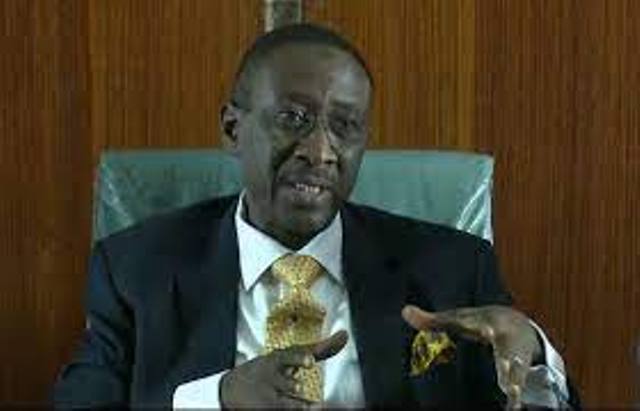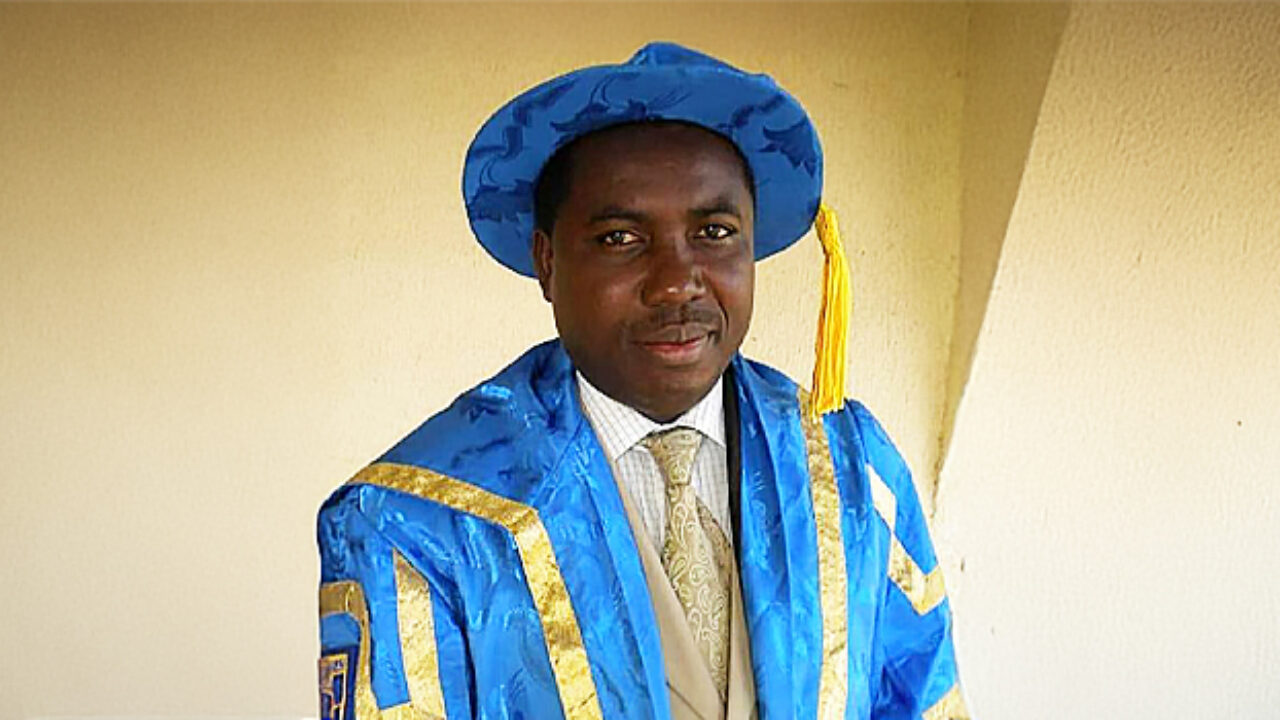As the activities of terrorists, bandits and other criminal elements threaten Nigeria, the national security council rose from its meeting yesterday and admitted that the country is in a “very difficult situation.”
The national security adviser, Maj. Gen. Babagana Monguno, stated this after the meeting held at the state house, Abuja and presided over by President Muhammadu Buhari.
Monguno who brief journalists admitted that Nigerians were tired of the current security challenges facing the nation and made a case for “a whole of society approach” to effectively overcome “asymmetric conflict” in the country.
He said the council had reviewed the security situation in the country and pledged to take urgent steps to address it.
“The council has seen it necessary to inform the general public that fight in this type of asymmetric conflict is a collective effort, it’s not something that should be confined to only the security, intelligence and law enforcement agencies. When we keep saying the whole of society approach, the whole of government approach, to get a whole of nation approach, what it means is that everybody has to partake in this enterprise.
“We are in a very difficult situation and the council understands. Mr. President (Muhammadu) understands people’s concerns about the growing insecurity, but I can assure you that there’s no straight, cut-and-dried method of dealing with this thing unless all of us embrace each other.
Stressing that the security situation could result in the citizens gravitating towards self help, the NSA called for the support of the people in fighting terrorism.
He said tackling security problems should be the task of everybody and not that of government alone.
“I know people are weary, people are tired; people are beginning to gravitate to other places for self help. The truth is that help is rooted in everyone working for the other person.
“I know people are wary, people are tired; people are beginning to gravitate to other places for self-help. The truth is that help is rooted in everyone working for the other person.
“The truth is that no country can ever overcome the difficulties of an asymmetric conflict by virtue of the fact that the enemy of the state is embedded within the population, within the wider society. It is true that the local people are averse, they’re scared, they’re worried and there’s no confidence. That is understandable.
“But without their support, without their cooperation in terms of giving information, it makes it very hard for the operational elements,” he said.
He said the recent killing of some members of the brigade of guards by criminal sovereigns in Abuja would have been aborted had the civilian population volunteered information, no matter how minute.
“A few days ago, troops of the guards’ brigade were ambushed and decimated. Had there been a collective effort by way of just snippets of information, we might have averted that incident. That is not to say that the responsibility is for those outside the security domain. It’s a collective responsibility.”
Meanwhile, he said the government was working on new strategies to curtail the worsening insecurity.
He said the military had agreed on new strategies to curtail the menace and assured Nigerians that there would be a renewed momentum against terrorism.
“Members of the armed forces have also made a commitment that in the coming weeks they have already started working on a new strategy to deal with these snippets of violence. And they’ve given their word, their commitment to the president, that there will be a change in momentum, regardless of the fact that there might be certain institutional limitations, which they face. But they understood the enormity of the responsibilities that they have.”
Monguno used the opportunity to caution the politician against unguarded utterances saying even if they are targeting the government with whatever they say, the entire society would be affected.
“Equally, the political elite is also urged to take into account the consequences of utterances, especially, from people who have established a reputation, people who are considered leaders of thought, people, who are considered to have some kind of influence in society – whatever goes out may be harmful, not just to the government, if that is the intention, which I doubt may not be a deliberate thing, but at the end of the day, it will affect the wider society.”
In the same vein, the NSA called on the media to be positive in the reporting of the security challenges.
“Council is also concerned about the nature of media reporting incidents with regard to insecurity. It is important for the media to understand that certain reports being generated by the media, either the way or manner in which they report can also aggravate this delicate situation,” he said.
The meeting was attended by the secretary to the government of the federation, Mr. Boss Mustapha; chief of staff to the president, Prof. Ibrahim Gambari; attorney general and minister of justice, Mr. Abubakar Malami; minister of interior, Mr. Rauf Aregbesola; foreign affairs minister, Mr. Geoffrey Onyema; police affairs minister, Mr. Mohammed Dingyadi and defence minister, Mr. Bashir Magashi.
The chief of defence staff, Maj. Gen. Lucky Irabor; chief of army staff, Maj. Gen. Farouk Yahaya; chief of naval staff, Rear Admiral Awwal Gambo; chief of air staff, Air Vice Marshal Isiaka Amao; and chief of defence intelligence, Mr. Samuel Adebayo also attended.
Also in attendance were the inspector general of police, Usman Alkali; director general, Department of State Service (DSS), Mr. Yusuf Bichi; and director general, National Intelligence Agency (NIA), Mr. Ahmed Abubakar.






















































